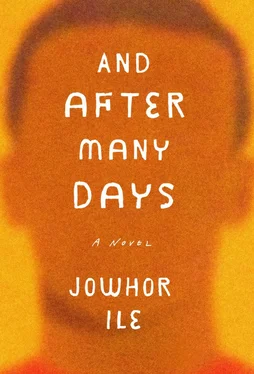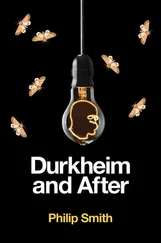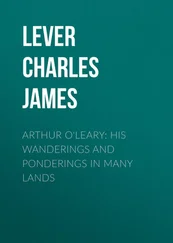“I will charge for study materials, but not yet. For now I need to encourage people to enroll. The notebooks and stationery you sent will go a long way.”
Ma stood up, collected the empty bottles from the table, and went into the kitchen.
Bendic turned on the television and asked Mr. Ifenwa if he’d read a particular story in the Vanguard . It was about a director in the Ministry of Education who’d claimed there were no funds to pay pensioners for the past three months, but there were now allegations that he had put the money on a fixed deposit to make interest on it, and yesterday a large crowd of pensioners gathered in front of his office at the state secretariat, demanding to be paid at once.
Two local schools were dueling on a debate program on TV. Baptist High and Oromineke Girls. The topic was juvenile delinquency: Who was to blame, the parents or the school? The studio audience members were mostly students from both schools, seated on opposite sides. The students from Oromineke Girls were dressed in checked green uniforms, and the Baptist boys wore white shirts and white trousers. The panel was seated at the center.
A girl in a neatly pressed green checked dress opposed the notion that the schools were to blame. She spoke fast. The words rushed out of her and Ajie’s mind raced behind, grasping them when she was already on to the next sentence. Her hands flew up now and again. Finally, she turned with alacrity toward the rival school and said with defiance, “I hope with these few points of mine, I have been able to convince my opponents that…” A storm of clapping followed when she finished. The moderator called for the second speaker from Baptist High. A boy in white trousers and a long-sleeved shirt moved to the center.
“He looks a little bit like Paul,” Ma said.
“No way,” Paul said.
“He does,” Ma insisted. “You just can’t see it. Look at his nose and forehead.”
“I don’t agree.”
“Keep arguing.”
“Paul will be taller when he gets to that age,” Gabby said.
“Let’s hear what the boy is saying, at least,” Bendic grunted.
“Moderator,” the boy began, motioning with a sweep of his hand, “panel of impartial judges, co-debater, accurate timekeepers, viewers at home, good day.” His voice was steady and strong, the cadence of rehearsed thoughtfulness. “I am here to propose the motion that juvenile delinquency is primarily caused by the home. My erring opponent has said—”
The entire parlor disappeared into blackness. The TV went dead. “NEPA!” someone gasped. “Oooh!” the children moaned. “What kind of nonsense is this?”
“Bendic, should I ask Ismaila if there is any diesel?” Paul asked, his shadow by the door, ready to leave. Ma’s slippers flapped in the kitchen. Then there was the sound of a match being struck and the flash of flame. She placed the lantern on the dining table and trimmed the light to the desired brightness.
“While we wait,” Ma said. It was a moving-on kind of voice. While we wait for power to be restored so we can return — if we are lucky — to the tail end of this debate we were just beginning to enjoy. While we wait, here is a lantern.
“So long as the power situation is not solved in this country,” Mr. Ifenwa said, “we are going nowhere.”
The metal railings on the veranda rattled. Paul’s voice: “Ismaila said the fuel can carry for some hours.”
“Okay, let him put it on. Maybe for an hour. Let’s finish the program, at least.”
“He should watch out,” Ma added, “for when NEPA returns light so he can switch over.”
They caught the last fifteen minutes of the show. The boy (who may or may not have looked like Paul) was finishing his argument. “Thank you,” he said firmly, then turned around to take his seat as clapping broke out yet again.
Years later, Ajie would remember this particular debate. He would also remember Paul’s picture coming up on TV, on the two stations in the city, as announcements of his disappearance were being made. Five days after Paul disappeared, Bendic went to the TV stations with Paul’s photograph. He provided them with Paul’s full name, his age, when and where he was last seen, and then there was an appeal for any information that might aid in finding him. By now their earlier feelings of discord between hope and fear had fallen away, and there were just horror and dread. Ajie would remember the boy TV debater and would mix up his face with Paul’s. He would replace Paul’s clothes with this boy’s white and white. It would make perfect sense to him, because at the time of the disappearance, Paul was about this boy’s age, only a little taller.
The seeds of Paul’s disappearance were sowed by his parents. This was what Ajie decided. And who else was there to blame? Not Bibi, she had no hand in the matter. As for Paul, you really can’t blame a person for his own disappearance, at least not while he is still missing and cannot speak for himself.
To tell Paul’s story, you would have to start from before he was born. The life of Bendic and Ma together was well documented in the framed photographs hanging on the walls of their village home in Ogibah. A house that took five years to build and was finally completed the year Bibi was born. Ma and Bendic were arrayed in various settings in these pictures. The backdrops were wrought-iron gates of colleges in the newly independent Nigeria, stone monuments in gray English cities; they were smiling and holding hands in a pigeon-littered square in Rome, standing with flutes of champagne in their hands at a party in Port Harcourt, leaning on a white Volkswagen Igala on a side street in Lagos.
They returned from England in ’64 and took up civil service jobs in Lagos: Bendic in the Ministry of Justice, Ma in Education. Bendic was sporting a thick mustache, his dark-framed spectacles, and a dark suit. Ma was in a sleeveless shift dress and clunky heels. They both had buoyant Afros and wore bell-bottom trousers in the early pictures. Down the years, Ma’s enormous hair softened into Jheri curls; Bendic’s suits turned beige, and his hair was patted down, looking milder, less radical.
There were hundreds of photographs stored in the albums in the Formica sideboard. Bibi had this habit then. Each time they were in the Ogibah house, she would point someone out in a group photograph and ask, “Ma, who is this person?” and Ma would ask her to bring the photo closer. Sometimes the name came immediately, often with a side story. At other times Ma would go, “Mmm…is this not…?” and Bendic would help out. Or they might decide it was a friend’s friend they’d met at the dinner party.
In another photo they were in the foyer of the Cedar Palace Hotel; Bendic was wearing a lace tunic with embroidery around the neck and thick black-framed glasses.
“I think we had just been to the cinema,” Bendic explained.
Ma’s hair was tied up in a wrap; she was clutching a clasp purse under her arm, and her skirt was made of aso-oke, darkly striped and very short.
There was a studio photo in which Ma was sitting on a cane chair with a fancy mat spread underneath it. She was dressed in a loose flowered maxi gown, the hem of which rested on her ankle. Her legs were crossed, showing off clunky wooden heels, and next to her, standing on the mat, was Bendic, slender-hipped, in flared trousers and a patterned shirt; his long-collared shirt was undone three buttons down, revealing chest hair. His left hand was resting on Ma’s shoulder. They wore serious faces and wide dark glasses. Ajie liked this picture more than all the others. It was his firm belief that this was what movie stars of those days looked like. One day he asked Bendic if he and Ma used to be actors, and Bendic answered, “What?” Like someone who hadn’t heard the question, or maybe it was a silly question to ask. So Ajie turned around, brought the picture to Bendic, and pointed. “Look.”
Читать дальше
